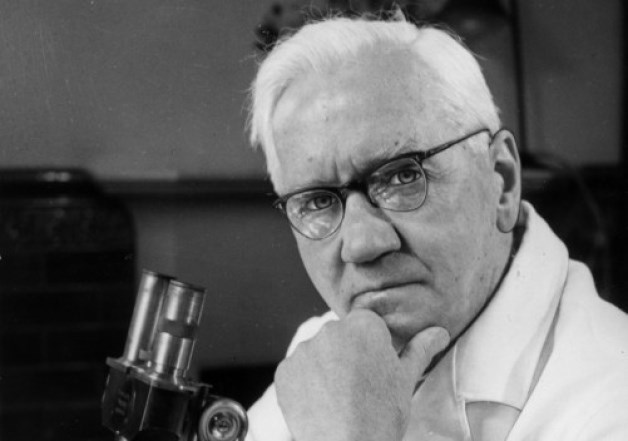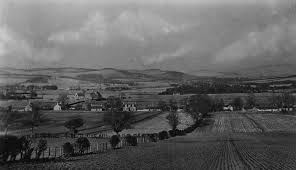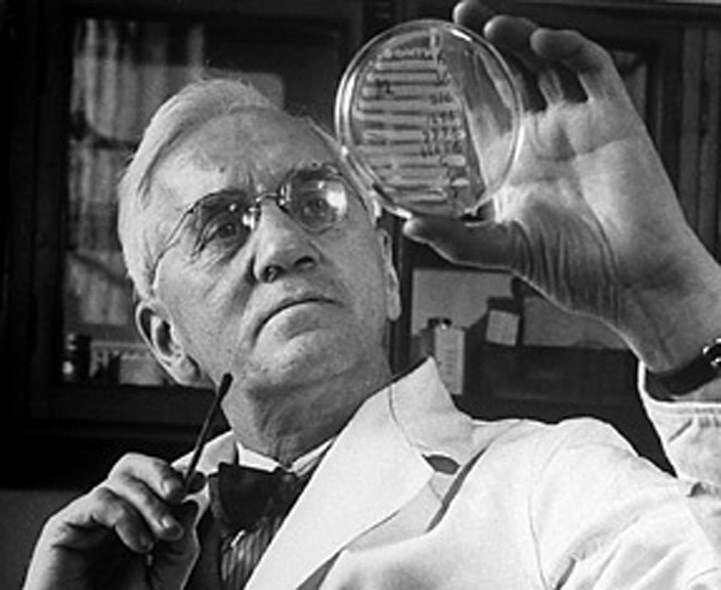 |
| Alexander Fleming. (http://edukationz.com/ ()) |
"One sometimes finds what one is not looking for" (Alexander Fleming). During a lab accident in 1928, Alexander Fleming discovered the "wonder drug" penicillin, an antibacterial agent that saved an estimated 200 million lives. Fleming is one of the most recognized scientists in history, but he came from humble beginnings. Born and raised a farmer in Ayrshire, Scotland, Fleming grew up the seventh of eight children. He developed a skill for observation from studying nature and became interested in science. At a young age he left for London where he studied medicine and later served in the Army Medical Corps. Fleming grew up with nothing; he was raised a poor farmer in the hills of Scotland. It was his determination and his will to help others that brought him on his path to greatness. Fleming selflessness and perseverance led to his great discovery that saved the lives of countless people.
 |
| Ayrshire, Scotland (http://visit-scotland.blogspot.com/ ()) |
Alexander Fleming grew up without much at all, but with his perseverance he worked his way to becoming one of the greatest scientists in history. From his early days, he was not one who was expected to save lives. "Alexander Fleming was born on Aug 6, 1881, at Lochfield Ayrshire, one of eight children of Hugh Fleming, a farmer" (Sir Alexander Fleming). Being a farm boy, it was unlikely that he would become a hero. It was his perseverance and determination to follow his interest in science that led him out of his farm in Scotland and into the world of medicine. In his career Fleming worked his way to becoming one of the greatest scientist of his time. "In 1945 he received the Nobel Prize in physiology or medicine and toured the United States, where he was hailed as a hero" (Sir Alexander Fleming). He earned the title of hero and was honored with many awards. He may had grown up a poor farmer, but he followed his dreams and became a Nobel Prize winner.
Fleming was a very accomplished scientist who rescued mankind from its gradual demise. Bacterial disease was killing a large amount of the population. "Imagine a world where getting a paper cut would result in amputation. This is a world where bacteria were beating mankind"(Invention of Penicillin). Infection was common from any open wound- from a scratch an arm on a wall to a bullet wound. Countless lives were already being taken each day, but with World War I more people were being injured, resulting in more infection. After Fleming's service in the Army Medical Corps, he identified the antibacterial agent lysozyme. Discovering lysozyme was enough to win Fleming fame and fortune, but he continued his antibacterial research. One day in 1928 "Alexander Fleming discovered penicillin, a "wonder drug" that ushered the era of antibiotics. This new weapon against bacterial disease offered hope in fighting many infections that could not be effectively treated in the past" (Sir Alexander Fleming). Fleming found the solution to the constant issue of bacterial infection. Thousands of people were dying from infection each year, and the problem was especially preeminent in injured soldiers fighting in World War I. With the new drug, "penicillin," a revolution in medical treatment was born. The soldiers in the war wouldn't be doomed from infection since it could then be treated, and the common people wouldn't need to fear infection either. Alexander Fleming's selflessness was expressed through his service to the military and the rest of the world.
 |
| Fleming's famous discovery. (http://www.sciencelogs.com/ ()) |
Alexander Fleming's perseverance and selflessness led to his breakthrough discovery, and that discovery would change the world. Penicillin was discovered when he noticed the bacteria had been killed off by fungi in a petri dish. "Instead of throwing it away, like anyone else would have done, he looks at the petri dish with the dead bacteria and sees a chance to change the course of human life" (Invention of Penicillin). Fleming was observant and attentive and saw the opportunity that was gifted by that little petri dish of dead bacteria. His bacteria killing substance would be known as the world's first antibiotic. "Antibiotics are without a doubt one of the greatest breakthroughs of man. They have saved hundreds millions to billions of lives" (Invention of Penicillin). Alexander Fleming's drug changed the peoples' way of life and allowed humans to fight back against the microscopic killer. He accomplished what no other man had done. Fleming may had been born a poor farmer, but his determination and desire to help people led him all the way to that lab in London, where he would save mankind from bacterial infection.
"Alexander Fleming- Invention of Penicillin." Bio. A&E Television Networks, 2015. Web. 25 Mar. 2015. American Chemical Society International Historic Chemical Landmarks. Discovery and Development of Penicillin. 25 Mar. 2015. "Fleming, Sir Alexander." Britannica Biographies (2012): 1. History Reference Center. Web. 24 Mar. 2015. "Sir Alexander Fleming." Encyclopedia of World Biography. 2nd ed. Vol. 5. Detroit: Gale, 2004. 483-485. Gale Virtual Reference Library. Web. 24 Mar. 2015 Zydowsky, Thomas M. "Fleming, Alexander." Chemistry: Foundations and Applications. Ed. J. J. Lagowski. Vol. 2. New York: Macmillan Reference USA, 2004. 103-104. Gale
Page created on 4/21/2015 12:00:00 AM
Last edited 4/21/2015 12:00:00 AM
